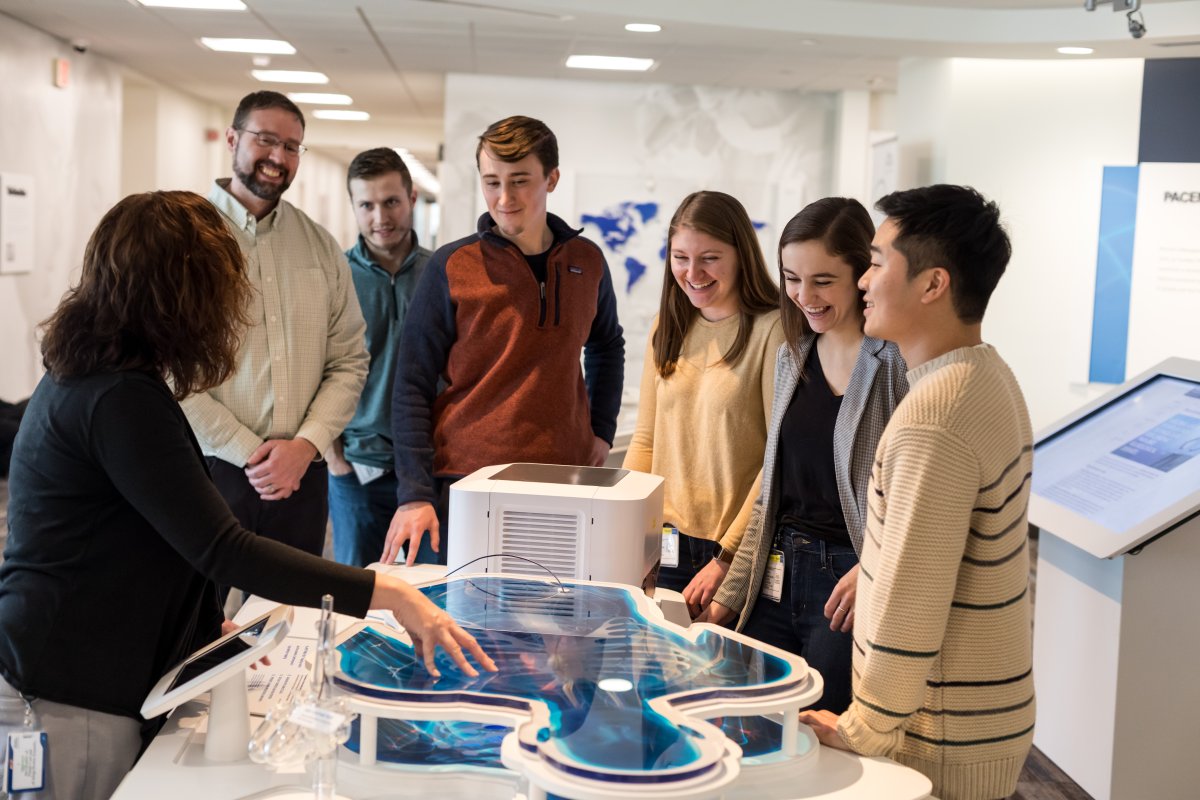Seniors Reinvent a Healthcare Supply Chain

In Spring 2020, 10 companies sponsored 17 Senior Design projects. Project teams of four to five seniors worked to address important issues affecting these businesses. The teams conducted site visits, collected data, developed models, and performed analysis to provide their sponsors with fresh perspectives and insights intended to address important challenges. Simultaneously, students practiced hands-on approaches to solving problems in a real-world setting.
One group was tasked with developing a new inventory management system for Boston Scientific Corporation, a medical device company with more than 22,000 UPNs (unique product numbers) that generate upwards of 6.5 million orders annually.
The project, managed by ISyE seniors Cassie Anderson, Brooklyn Berenz, Ji Woong Choi, Sam Loidolt, and Tyler Rouze, was complex in every regard. Their goal was to determine how Boston Scientific could improve visibility of their inventory once it reached its customers.
Typically, Boston Scientific’s inventory management system reacted to order placements: hospitals and health centers would request a product and then receive it from one of Boston Scientific’s warehouses. However, once products reached the customer, Boston Scientific did not know when (or if) a product was used. With real-time usage data, the team of seniors believed Boston Scientific could drastically improve its demand forecasting processes and inventory management. Moreover, the company would be able to save millions of dollars annually and eliminate waste from products with high inventory and little demand.
Meetings with Boston Scientific employees and hospital staff provided insights that the team of seniors used to outline a centralized database. They began by tracking implantable devices that were sold in the U.S. The team determined that Radio-Frequency Identification (RFID) cabinets were the best solution for Boston Scientific and their customers. Products could be stored in the RFID cabinets and removed as needed, meaning hospitals wouldn’t be burdened with extra inventory-tracking steps when providing care. At the same time, the RFID cabinets would capture nearly immediate point of use information, which could be shared with Boston Scientific.
In the end, the team of seniors handed off their recommendation guide to Boston Scientific for implementation domestically and, potentially, worldwide.
Other groups of ISyE seniors did the same for their sponsors. Despite the second half of their work all taking place remotely, each team successfully provided solutions to the problems posed by their sponsors across a range of industries.